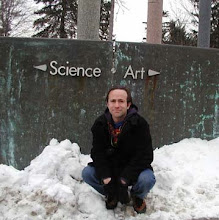I thought that some of the discussion in Zen and the Art of Motorcycle Maintenance shed light on Plato's writings and our overall discussion. Some excerpts presented here:
334-5) Dialectic as usurper. Seeking to contain and control the Good. Re: Plato’s condemnation of the Sophists. … “Plato’s hatred of the rhetoricians was part of a much larger struggle in which the reality of the Good, represented by the dialecticians, were engaged in a huge struggle for the future mind of man. Truth won, the Good lost, and that is why today we have so little difficulty accepting the reality of truth and so much difficulty accepting the reality of Quality, even though there is no more agreement in one area than in the other.”
336) philosophy … enshrined permanence in a new way.” “Heraclitus called the Immortal Principle fire and introduced change as part of the Principle.”
“Parmenides made it clear for the first time that the Immortal Principle, the One, Truth, God, is separate from appearance and from opinion, and the importance of this separation and its effect upon subsequent history cannot be overstated. It’s here that the classic mind, for the first time, took leave of its romantic origins and said, “The Good and the True are not necessarily the same,” and goes its separate ways.” …. Socrates who carried their ideas into full fruition.”
337) up to this point, “there was no such thing as mind and matter, subject and object, form and substance. Those divisions are just dialectical inventions that came later.” Calls these divisions an artistic creation – not things to be discovered….
In Dialogues of Plato “Socrates is not just expounding noble ideas in a vacuum. He is in the middle of a war between those who think truth is absolute and those who think truth is relative. … the Sophists are the enemy.”
338) “Truth. Knowledge. That which is independent of what anyone thinks about it. The ideal that Socrates died for. The ideal that Greece alone possesses for the very first time in the history of the world. It is still a very fragile thing. It can disappear completely. … Plato Damns them [the Sophists] because they threaten mankind’s first beginning grasp of the idea of truth.”
342) halo around heads of Plato and Socrates is gone. He sees that they consistently are doing exactly that which they accuse the Sophists of doing – using emotionally persuasive language for the ulterior purpose of making the weaker argument, the case for the dialectic, appear the stronger….”
“Plato hadn’t tried to destroy arête. He had encapsulated it; made a permanent, fixed idea out of it; had converted it to a rigid, immobile Immortal truth. He made arête the Good, the highest form, the highest Idea of all. It was subordinate only to Truth itself, in a synthesis of all that had gone before.”
>>KEY: “The difference was that Plato’s Good was a fixed and eternal and unmoving Idea, whereas for the rhetoricians it was not an Idea at all. The Good was not a form of reality. It was reality itself, ever changing, ultimately unknowable in any kind of fixed, rigid way.”
343 – the why, Make arête subordinate to Immortal Truth.
“But in his attempt to unite the Good and the True by making the Good the highest idea of all, Plate is nevertheless usurping arete’s place with dialectically determined truth. Once the Good has been contained as a dialectical idea it is no trouble for another philosopher to come along and show by dialectical methods that arête, the Good, can be more advantageously demoted to a lower position within a “true” order of things, more compatible with the inner workings of the dialectic. … it was Aristotle.”

No comments:
Post a Comment